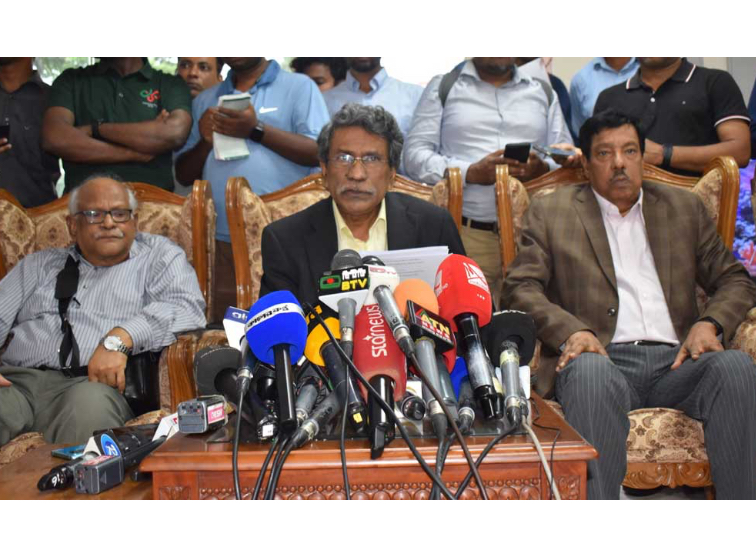

The National Consensus Commission will decide on the formation process of a proposed upper house in Bangladesh’s parliament after political parties failed to reach an agreement despite broad support for a bicameral system.
On Tuesday, the commission's vice-chairman, Ali Riaz, said a final decision would be announced on Sunday following conflicting proposals from major parties on how the second chamber should be structured, bdnews24.com reports.
After a day of consultations at the Foreign Service Academy, Riaz said: “There has been significant progress on the idea of a bicameral parliament and constitutional amendments.
“But due to differences among the parties, the commission will now have to decide on the structure of the upper house.”
According to Riaz, most major parties back a bicameral system in principle, but are split on how the second chamber should be constituted.
“Some propose forming it based on vote share, while others suggest it follow the proportion of seats in the lower house,” he said.
The day’s talks included meetings with both the BNP and Jamaat-e-Islami, who later clarified their positions.
BNP’s Salahuddin Ahmed said his party favoured forming the upper house in proportion to seats in the lower house. In contrast, Jamaat’s Nayeb-e-Ameer Abdullah Mohammad Taher argued for a vote-share-based proportional model.
Riaz acknowledged these competing views, saying the commission would continue informal communication with the parties and hold internal discussions before finalising the structure.
He also noted that constitutional amendments had been widely debated.
“If the bicameral model is not adopted, or until it is in place, changes to the constitution will require support from two-thirds of parliamentary seats,” he said.
On specific clauses like the preamble, Articles 8, 48, 56, 142, and the caretaker government provisions (Articles 58A, 58B, and 58C), Riaz said a public referendum would be mandatory for any amendment.
He added that there is no disagreement among parties about reinstating the caretaker government system, and the commission expects to reach a resolution next week on how its chief will be appointed.
He also stressed the need to ensure constitutional and institutional recognition of women's role in politics, citing their active participation in last year’s mass movement.


 For all latest news, follow The Financial Express Google News channel.
For all latest news, follow The Financial Express Google News channel.